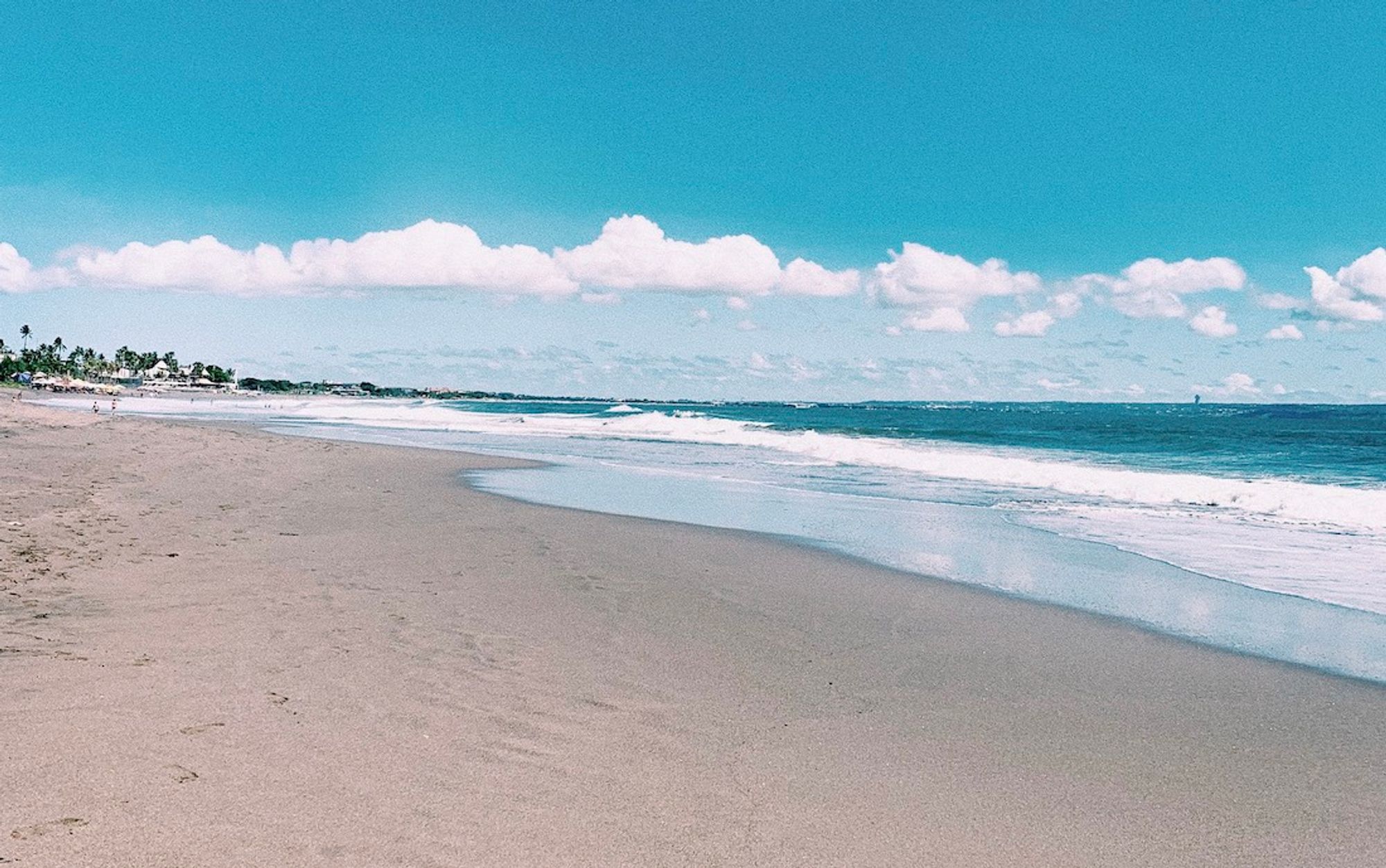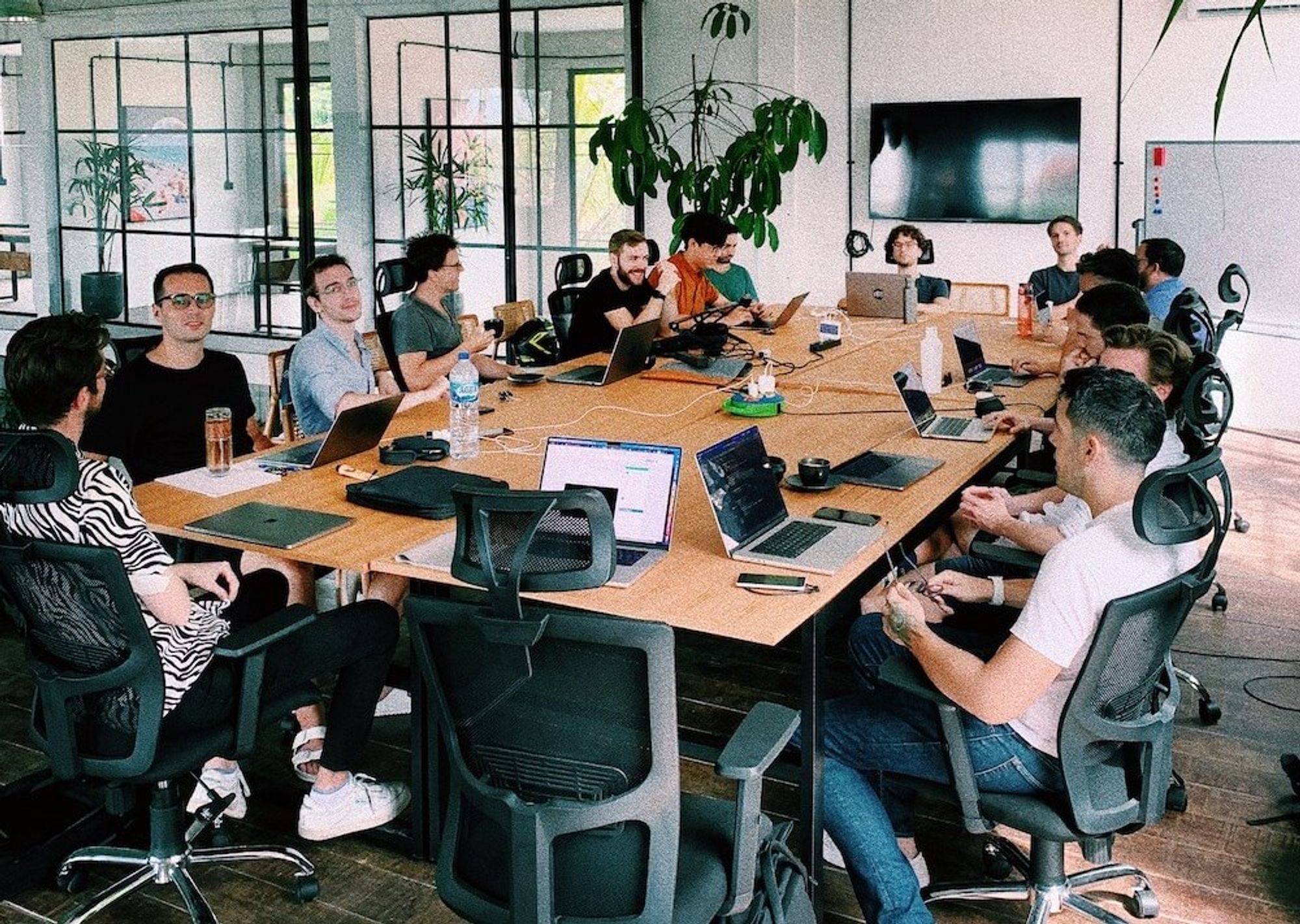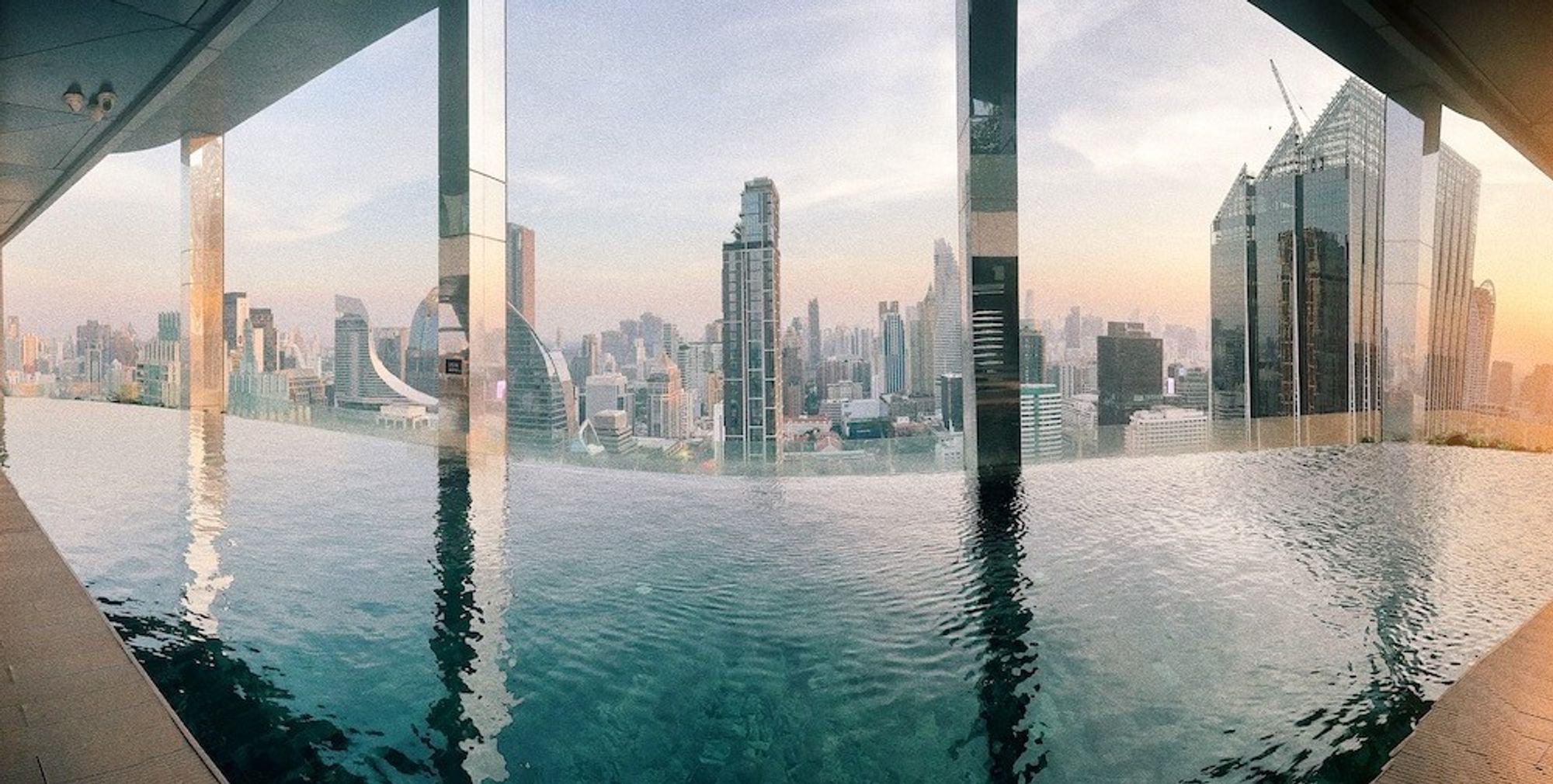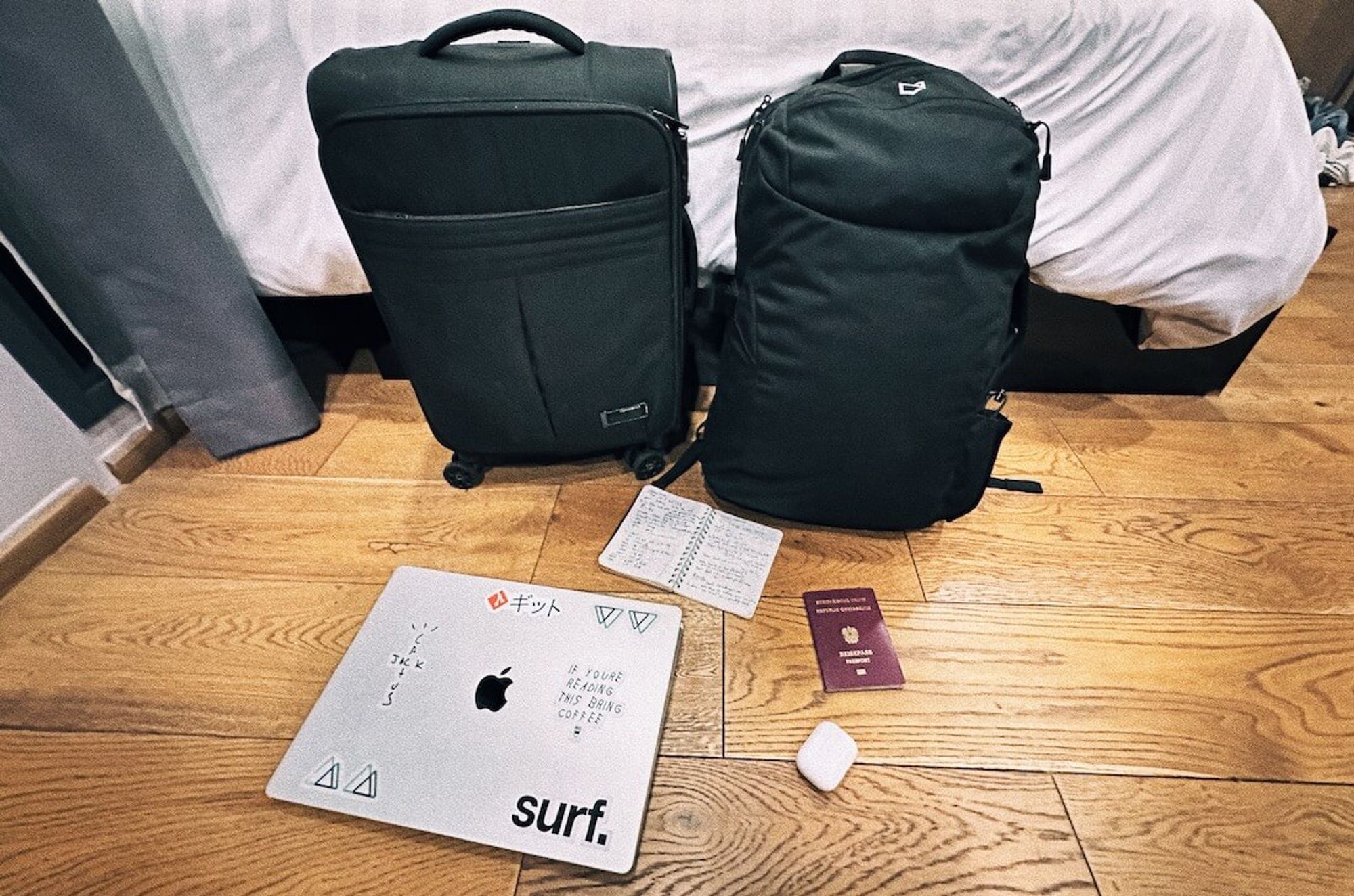Hello, hola, selamat siang, Привет, สวัสดีครับ from wherever you are reading this post.
For the past three years I have been building a business while traveling and learned a lot along the way. As it turns out, this can be quite hard.
In this post, I want to share with you my experiences living a "digital nomad" life for the past three years — traveling the world while actually still getting work done. My goal is to leave you with some actionable tips and tricks that you can hopefully apply to your own digital nomad journey.
Let’s start by laying the groundwork. My thoughts on traveling and working come specifically from the perspective of a solo founder trying to build independent software companies with no employees or outside funding.
That means I can work from my computer from any location and dictate my working hours as I see fit. This isn’t the only way to nomad, so take what I say with a grain of salt. Now that’s said and done, let’s start with the most important question. Why am I a digital nomad in the first place?
Why am I a digital nomad?
There are two main reasons why I am a digital nomad:
- New cultures and places make me happy. If you were to ask me whether I identify more as an extrovert or introvert, I would tell you that I am definitely more on the introvert side. Yet, for some strange reason, I absolutely love meeting locals and learning about their cultures. I can’t get enough. Furthermore, there are so many extremely beautiful places hidden in this world; it feels like Pokemon, and I want to catch them all. As a digital nomad, you have the “excuse” to see all of these amazing places while combining it with your work. It’s also no secret how much of a game-changer it is to be able to visit sights during the week at your own time while everyone else is working. No queues. Pure calm. It’s magic.
- Higher quality of living. Living as a digital nomad affords me a higher quality of life because of the strong purchasing power of the currency I am paid in. I earn my income in USD, which is stronger than most of my target countries' currencies. This is especially the case when traveling through the most amazing place in the world: Southeast Asia (officially claimed by… me). This allows me to significantly stretch my budget while also having a much higher quality of life than I would elsewhere. The cherry on top of is the absolutely amazing hospitality of these countries.
Contrary to popular belief, being a digital nomad is not all about sitting under palm trees on sandy beaches making money with my laptop. I do that everyday rarely do that. It’s not that easy, frend. But, the reality is that being a digital nomad can take you further away from your entrepreneurial goals than you might think.
If you want some advice on how to mitigate this, read on. In the next section, I will share with you some of the biggest lessons I’ve learned while nomading in the past three years.
Be Aware of Distractions
One of the easiest and earliest mistakes you (*cough I might have made *cough) is living a permanent vacation. Popular nomad islands like Bali or Ko Pha Ngan feel like a paradise on earth. It’s so easy to forget that you actually also have to work a bit. The problem with these places is that, especially the island life, can take away a lot of wind from your sails. It’s hot, you are surrounded by palm trees, and you drink coconuts.
Next thing you know, you are listening to reggae and wondering why people are forcing themselves to work at all when they can just chill on an island. I have seen lots of people getting stuck on paradise islands and settling for the bare minimum of work - essentially trapping themselves in the island lifestyle. Being aware of this phenomenon will help you take the emergency exit once your life has become a bit too chill.

Bali island life.
Let me tell you something you might not believe. Most digital nomads don’t work. You read that right. If I could get a cent for every time I have seen a “digital nomad” in a coworking space staring at their open Slack channel all day and getting an iced matcha latte every half hour, I could have already retired. So many nomads seem to just play corporate politics and pretend to be working while they are actually not. This can have an impact on your mood and motivation.
You are the people you surround yourself with, and it’s perhaps not what you expected when deciding to go to a fancy, cool coworking space to work alongside like-minded entrepreneurs. So keep that in mind. As an entrepreneur who has to work hard to produce a significant output, it requires extreme self-discipline to not get lost in the abundance of invitations for parties, ecstatic dances, cacao ceremonies, or whatever else you may encounter. Do a couple, but don’t get lost in the sauce.

The hacker family. Friends that actually do work. Quite hard ツ
Consider Slow-mading
Over the past three years, I have spent days, weeks, and months in various places. I’ve come to the conclusion that if you actually want to get work done, you need to stay in one place for at least a month. If I stay for less than this, I find it very hard to get into a focused state. It takes a while to get rid of your jetlag, find places to get food and coffee and explore your surroundings. You need at least a couple of weeks to get comfortable with the city before you can get into any flow state. Countless of my nomad friends feel the same.
So spending less than a month in one place is a recipe for chaos if you're planning to actually work. If you’re only in a cool place for a short amount of time, you’ll also find working for significant stretches of the day frustating, as you’ll feel "locked" inside. You can either work and feel like you’re missing out on all these fun things outside your window, or get distracted and fail to work at all.
Realistically, most days will feel quite mundane and repetitive. Staying longer at one location helps you balance this feeling. Personally, I recommend staying at a place for at least 3 to 6 months if you can. That's the sweet spot for me. Spending this amount of time comes with a lot of additional benefits:
- Living, not traveling. You will feel like you are actually living in the place rather than just visiting it. This will help you create the most important thing for a healthy life: a routine. It takes time to find a gym, healthy food options, great places to work from, etc.
- Getting to know the place. Staying longer will help you get a more comprehensive picture of a city, town or an island. You will find gems you would otherwise never find. Perhaps you could see yourself spending more time there in the future? More on this below.
- Integrating with the culture. This involves taking the time to learn about the local customs, traditions, and language. Not only will this help you better understand and appreciate the culture, but it will also make it easier for you to connect with locals and build relationships. Learning the language can be a particularly valuable tool. Even if you only learn a few basic phrases, it can make a huge difference in how locals perceive you. I guarantee you people will love you for trying (speaking from experience), no matter how bad you are, and this will massively enhance your entire experience.

Can you guess which city?
Be Prepared for Emergencies
Safety and security is the pillar of Maslow’s hierachy of needs. I personally find it extremely hard to relax and get into a productive work state of mind when these needs are not met. Being prepared for emergencies is something that might seem so obvious it doesn’t even need to be discussed — but this could not be further from the truth. Over and over again I meet nomads that have absolutely no idea what to do when things would get slightly serious. Heck, quite a good chunk of nomads don’t even have travel insurence.
Contrary what you would think, emergency healthcare is extremely expensive even in generally cheap locations such as South East Asia. Healthcare can rek you if you are not aware of it. Singapore, Kuala Lumpur and Bangkok have some of the best hospitals in the world but they aren’t necessarily cheap. So, make yourself familiar with the local healthcare system, where to get help if needed and make sure you have proper travel or global health insurance. Do not sleep on this. You’ll thank me later.

Hospital visits are never fun but they happen.
Traveling Light
This one took me a long time to fully grasp. When I first started traveling, I was carrying a huge American Tourister suitcase, another carry-on, and a big backpack. This turned out to be a disaster when nomading for obvious reasons. I thought I really had to bring my entire dorm room's closet with all my cool clothes and all the unnecessary tech gadgets I used maybe once a year. I brought two winter jackets to live in Hong Kong: a place with 98% humidity and a temperature that never falls below 25C. Maybe a sudden once-every-century winter storm would hit me?! I was prepared!
In reality, traveling with a lot of baggage creates a lot of baggage both physically and mentally. So, heavy-heartedly, I started pruning down my belongings based on the things I actually use and wear consistently.
#minimalism #itjustdidnotsparkjoy.
It took me a while, but I have to say I feel mentally so much better owning fewer things. All that stuff occupies valuable real estate in your brain that you can easily free up and use for much better things. The great benefit of doing this is also that you can splurge a little bit more on upgrading the small amount of things you have, making them even more enjoyable to use.

Everything I own in one picture.
Finding a Base
Here's the last thing: although being a digital nomad is fun and all, after a while, it can become pretty hard on your mental health to never have a real home. But wait, isn't that what we are trying to avoid in the first place? I actually don't think so. Let me explain. As mentioned above, if you are not following a slowmad approach, you will very quickly realize how fast this lifestyle is tearing at you. Don’t forget that travel is no cure for the mind, should you find yourself in that bracket. You see, most people have never left their hometown, but you did. You have already seen amazing places on your nomad journey and probably fell in love with one or two of them. This is where the concept of having a "home base" comes in.
Having a base where you can return to between trips can help you stay grounded and maintain a sense of normalcy in an otherwise chaotic lifestyle. It provides a sense of familiarity, routine, and stability that is essential for maintaining mental health and well-being. Additionally, having a base means that you have a community of friends and acquaintances that you can rely on for support and social interaction.
When you're always on the move, it can be challenging to form meaningful connections with people, and loneliness can become a real issue. Having a base where you know you can return to visit most of your friends can help alleviate this. I am still in the process of finding my base, but I already have some close candidates.
So, there you have it. These are my most pressing thoughts on how to a digital nomad lifestyle actually work. While I still have many things to explore and learn, I hope this post has helped you figure out a thing or two for yourself.
Of course, if you have any questions, feel free to shoot them my way. I'm always happy to help where I can. Do you have made your own experiences being a digital nomad? I’m super curious to hear more!
